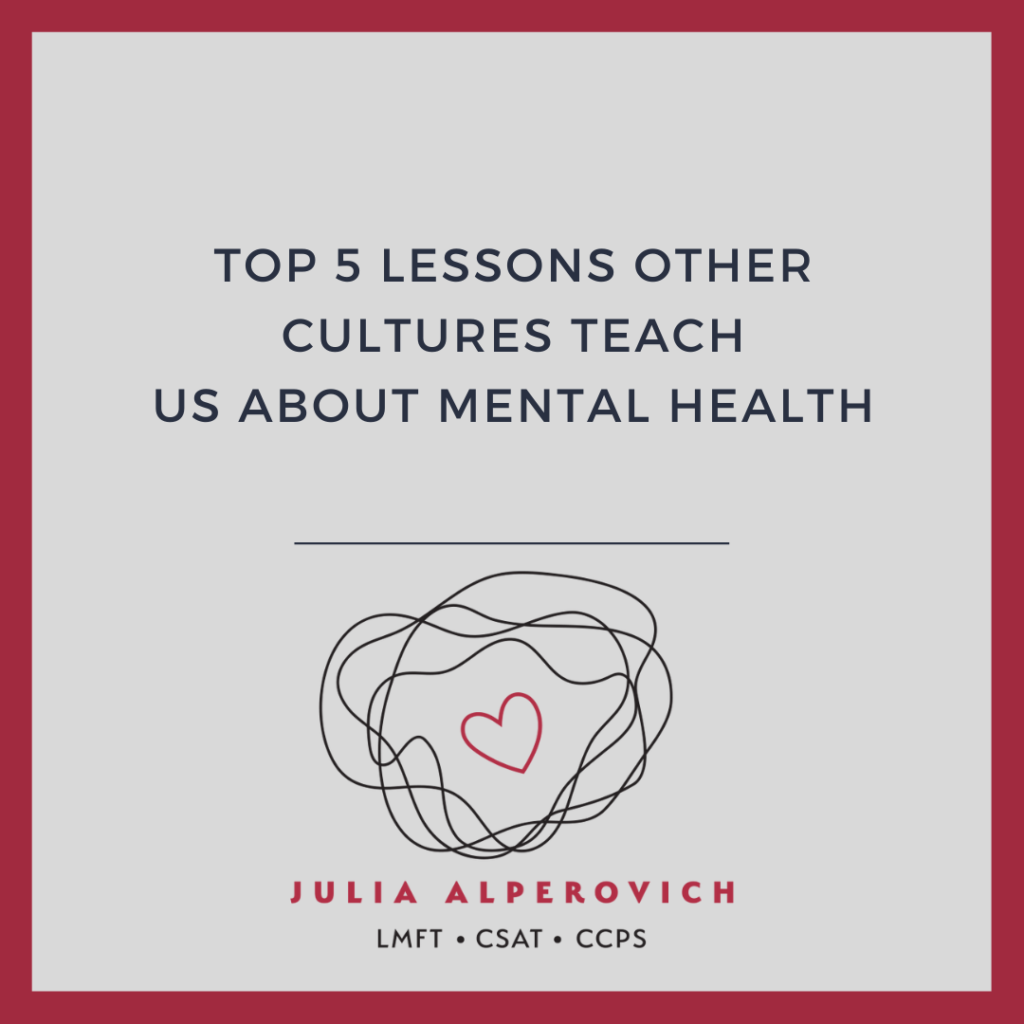Top 5 Lessons other Cultures Teach us about Mental Health explores what it means to maintain health, worldwide. Seems subjective, right? What is healthy for one person, experiencing a certain type of trauma, may be completely different from another person. The key takeaways from this are not that some traumas are worse than others, we discuss this in Big T vs Little t, but ways that other cultures regularly reduce stresst that we can learn and apply in coping with our own trauma.
Some ways we fail in today’s US culture is through supporting each other and communication. In cultures with significantly better communication, looking at you text messages and social media, you are able to talk openly to friends and family about how you are feeling regularly, which can relieve considerable stress. This is also why I recommend regular therapy, because everyone needs to talk and deserves to be heard. My doors and Zoom calls are available.
Here’s to happier mental health!
Meditation- Well this seems like a no brainer, and potentially the most boring advice your therapist can give you, or a stranger can tell you when you try to communicate emotions. Have you tried meditation? However, it is practiced all over the world, on nearly every continent, and for very good reason. Our thoughts have a huge amount of power, and silencing our thoughts can give us control. When you are spiraling up and out, and your thoughts start to run, this is especially important. A quick meditation can ground you by silencing or at least slowing thoughts down.
Yoga- no not yoga classes in a million degrees, yoga is in actuality just breathing. Like meditation, which is just silencing the mind and body, yoga is controlling the breath. Makes sense right? Our breath, in a moment of ptsd and trauma, can spiral completely out of control. The Eastern practice of yoga, both the bodily movement, and the slowing of the mind, is excellent for processing trauma. We use this in nearly all recovery programs.
Exercise- Now, I know I am really becoming annoying in these. No one feels like taking a jog when you have just had a breakup, but hear me out. The effects of exercise reduce depression and also release chemicals that make us feel better, period. Just walk. Get out of your house. This is a practice all over the world, in all cultures.
Work-Life Balance and Boundaries- Sure, sounds easy, but Gary puts in 80 hours and I want to make partner too, so I have to be available. No, no you don’t. Take a cue from Europeans, they take months off to completely decompress. In Australia, many adopt the four day work week, and Scandinavians have both. Make and maintain boundaries. Turn off your phone, keep separate phones, whatever you have to do. Just take a break or you will burn out. You DO NOT have to keep up with anyone. Do the best work you can do.
Connection is KEY- Lastly, in many indigenous cultures, what might sound like water cooler small talk in a jungle somewhere, is actually vitally important to their health as a civilization. Regular and routine communication makes it easier to discuss hard things. So reach out and communicate regularly. Really and truly, you do not need a million people to do this, just a couple. A therapist is a good start.
If you are looking for a therapist or particularly a sex and relationship therapist, please contact me.
Did you find Top 5 Lessons other Cultures Teach us about Mental Health helpful? Follow our blog here.


